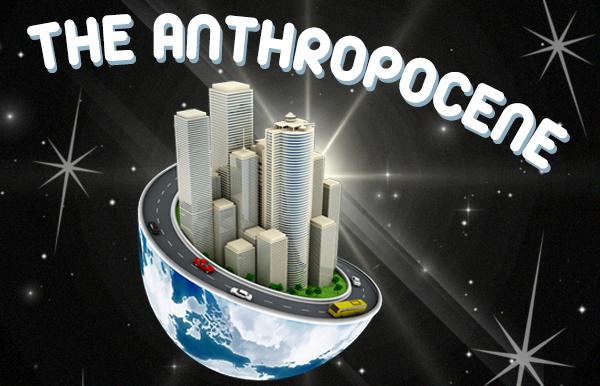
Photo by Maggie McCain.
By now you’ve probably seen the headlines proclaiming that organic foods are no more nutritious than conventional ones. And, if you spring for the organic option at the store, you’ve probably assumed there’s hard evidence of the health benefits – so what gives?
Well, the headlines are all based on a Stanford University meta-analysis that combined data from 237 studies. But just because this mega-study has made such a big media splash doesn’t mean it tells the whole story.
In fact, in the first 24 hours after the study was released, many writers and food experts stepped up to point out some important gaps both in the study’s approach and in the media coverage. (The Heartland Institute, that great bastion of climate denial, on the other hand, has fully embraced the Stanford study.) Here are some of the most articulate responses:
1. On the San Francisco-based KQED’s blog, reporter Jon Brooks interviewed Michael Pollan, asking: “So is this meta-study a big deal?” The author of The Omnivore’s Dilemma and In Defense of Food responded by saying:
I think we’re kind of erecting a straw man and then knocking it down, the straw man being that the whole point of organic food is that it’s more nutritious. The whole point of organic food is that it’s more environmentally sustainable. That’s the stronger and easier case to make.
It’s true the body of research around nutrition is really equivocal, and we need to do more studies on that. But the success of organic doesn’t stand or fall on that question. This study disputes how significant the differences in antioxidant and nutrient levels are between organic and conventional food. But that’s not central to the discussion of why organic is important, which has a lot more to do with how the soil is managed and the exposure to pesticides, not just in the eater’s diet but to the farmworker.
…
It’s great media fodder and it’s terrific that people are looking at the issue and debating it. But people should take a hard look. So much of the story depends on what do you mean by “significant health benefit?” The meta study found less pesticide residue, higher levels of anti-oxidants – plant phytochemicals thought to be important to human health; and less antibiotic-resistant microbes in organic meat. But then they say it might not be significant. I don’t think they defined significant.
2. Chuck Benbrook, a scientist who has dedicated much of his career to looking questions of nutrition and organic production (recently at The Organic Center, and currently as professor of agriculture at Washington State University) has also written a compelling response on the university’s website. In it, he says:
The team’s answer to the basic question “Is organic food more nutritious or safer?” is based on their judgment of whether published studies provide evidence of a clinically significant [emphasis his] impact or improvement in health. Yet few studies have been designed in a way that could isolate such impacts.
From my read of the same literature, the most significant, proven benefits of organic food and farming are: (1) a reduction in chemical-driven, epigenetic changes during fetal and childhood development, especially from pre-natal exposures to endocrine disrupting pesticides, (2) the markedly more healthy balance of omega-6 and -3 fatty acids in organic dairy products and meat, and (3) the virtual elimination of agriculture’s significant and ongoing contribution to the pool of antibiotic-resistant bacteria currently posing increasing threats to the treatment of human infectious disease.
The Stanford team’s study design precluded assessment of much of the evidence supporting these benefits, and hence their findings understate the health benefits that can follow a switch to a predominantly organic diet, organic farming methods, and the animal health-promoting practices common on organically managed livestock farms.
Over time, unbiased analysis coupled with modern-day science is likely to show with increasing clarity that growing and consuming organic food, especially in conjunction with healthy diets rich in fresh, whole foods, is one of the best health-promotion investments we can make today as individuals, families, and a society.
3. On its website, ConsumerReports.org, the Consumers Union dug into what it called the study’s “serious limitations.”
- The analysis included plenty of studies that did find a nutritional benefit to eating organic food, such as higher levels of phosphorous and phenols (a type of antioxidant compound) in organic produce and more omega-3 fatty acids in organic milk and chicken. Some other studies weren’t able to identify a benefit, meaning the findings overall were heterogeneous, or mixed — which is very different from “no benefit” across the board.
- Only three of the 17 human studies in the analysis looked at health outcomes, and two of those focused on allergies in children — an odd metric for comparing organic to conventional diets, since there’s no reason that organic diets should correlate with fewer allergies. “That isn’t part of what organic food production even is and it isn’t surprising to learn there may not be any difference” in the rates of allergies between children who eat organically and those who don’t, says Urvashi Rangan, Ph.D., director of consumer safety and sustainability for Consumer Reports.
- It could take many years for the cumulative effects of pesticide buildup in the body from eating conventionally grown food to show up. Cancer risks, for example, are calculated over long periods of exposure to carcinogens. The human studies in the Stanford analysis lasted at most two years.
4. New York University nutrition professor and Food Politics author Marion Nestle didn’t hesitate to point out how redundant she found the study. In a post called “Are organics more nutritious? Again? Sigh,” she wrote:
Never mind the media hype. Here’s what the authors conclude:
The published literature lacks strong evidence that organic foods are significantly more nutritious than conventional foods. Consumption of organic foods may reduce exposure to pesticide residues and antibiotic-resistant bacteria.
Isn’t reducing exposure to pesticides and antibiotic use precisely what organic production is supposed to do?
Organics is about production methods free of certain chemical pesticides, herbicides, irradiation, GMOs, and sewage sludge in plant crops, and antibiotics and hormones in animals.
This meta-analysis confirms that organic foods have much lower levels of these things. I’d call that doing exactly what it is supposed to.
5. Brian Fung, associate editor at The Atlantic, had a similar take. He wrote:
For all the attention devoted to the ways organic is better for you, we should remember that organic began chiefly as an argument about the environment. From the agency’s perspective, to buy organic is to respect the land your food came from. It means taking pains to ensure that your farms remain bountiful and productive, even decades from now. The case is one part self-interest over the long term, and one part a statement of ethics. Not really what you’d expect from a mechanical bureaucratic institution.
Buying organic is also a statement about public health. Nowhere is this clearer than in the case of antibiotics. Conventional farms have been putting the stuff in animal feed for decades — even though we’ve known since the 1970s about the health hazards that the animal use of antibiotics poses for humans. Reducing society’s chances of inadvertently creating a superbug is a good reason to purchase organic foods.
6. Jason Mark over at Earth Island Journal honed in on the value of organics to farm communities. In his post, “Eat Organic: It’s Good for Other People’s Health,” he wrote:
When pesticides are sprayed onto farm fields, they don’t just stay in that one place. They seep into the water and waft through the air and accumulate on the shoes and clothes of farm workers. In recent years in California (the country’s top ag producer) an average of 37 pesticide drift incidents a year have made people sick. Pesticides also find their way into the homes of farm workers. A study by researchers at the University of Washington found that the children of farm workers have higher exposure to pesticides than other children in the same community. When researchers in Mexico looked into pesticide exposure of farm workers there, they found that 20 percent of field hands “showed acute poisoning.”
The health impacts on those workers were serious and included “diverse alterations of the digestive, neurological, respiratory, circulatory, dermatological, renal, and reproductive system.” The researchers concluded: “there exist health hazards for those farm workers exposed to pesticides, at organic and cellular levels.”
There are shelves’ worth of studies documenting the health dangers of pesticide exposure. A study published last year found that prenatal exposure to organophosphate pesticides — which are often sprayed on crops and in urban areas to control insects — can lower children’s IQ. A follow-up investigation into prenatal pesticide exposure concluded that boys’ developing brains appear to be more vulnerable than girls’ brains …
Yes, the health benefit to you might be modest. But the health benefits to farming communities, farm workers, their children, and their unborn children can be huge. Reason enough, I think, to look for the organic label.



